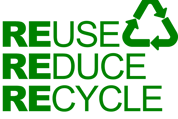Postpartum Recovery: Essential Health Advice for New Mothers in Singapore and Malaysia
Welcoming a new baby is a joyous milestone, but the physical and emotional recovery after childbirth requires attention and care. At Cledevie, we understand the unique needs of mothers in Singapore and Malaysia during this transformative time.
5/16/20254 min read


Understanding the Fourth Trimester
The first three months after giving birth—often called the "fourth trimester"—is a critical healing period. In Singapore and Malaysia, this time has traditionally been observed as a "confinement period" (known as "zuo yue zi" in Chinese culture or "pantang" in Malay culture), typically lasting 30-44 days.
During this time, your body undergoes significant changes as it recovers from pregnancy and childbirth, while you simultaneously adapt to caring for your newborn. Understanding what to expect can help you navigate this period with confidence.
Physical Recovery After Childbirth
For All New Mothers
Hormonal Shifts
The dramatic drop in pregnancy hormones can affect your mood, energy levels, and physical well-being. You may experience:
Night sweats as your body eliminates excess fluid
Hair loss beginning around 3 months postpartum
Changes in skin pigmentation gradually fading
Breast Changes
Whether breastfeeding or not, your breasts will undergo changes:
Initial engorgement when milk comes in (usually day 2-5)
Sensitivity and fullness
Potential challenges like plugged ducts that require prompt attention
Pelvic Floor Recovery
The pelvic floor muscles support your reproductive organs, bladder and bowel. Many new mothers experience:
Temporary urinary incontinence when coughing or sneezing
Feelings of heaviness or pressure in the pelvic region
Gradual improvement over weeks to months with proper care
After Vaginal Delivery
Perineal Healing
If you had a vaginal birth, especially with an episiotomy or tear, you may experience:
Discomfort while sitting or moving initially
Gradual healing over 2-3 weeks
Benefits from sitz baths and cold packs in the first week
Lochia (Postpartum Bleeding)
Vaginal discharge after birth follows a typical pattern:
Bright red bleeding for 3-5 days
Pinkish-brown discharge for about a week
Yellowish-white discharge for an additional 2-4 weeks
After Cesarean Delivery
Incision Care
Proper care of your C-section incision is essential:
Keep the area clean and dry
Watch for signs of infection (increased redness, swelling, discharge)
Expect complete healing of the external incision within 4-6 weeks, though internal healing takes longer
Additional Recovery Needs
C-section recovery includes:
Limited lifting (nothing heavier than your baby) for 6-8 weeks
Gradual return to normal activities
Specialized abdominal support garments may help with comfort
Emotional Wellbeing During Postpartum
Baby Blues vs. Postpartum Depression
Baby Blues
Approximately 70-80% of new mothers experience "baby blues":
Sudden mood swings and tearfulness
Feelings of being overwhelmed or anxious
Typically peak around day 4-5 and resolve within two weeks
Postpartum Depression (PPD)
More serious than baby blues, PPD affects about 10-15% of new mothers in Singapore and Malaysia:
Persistent feelings of sadness, emptiness, or hopelessness
Difficulty bonding with your baby
Loss of interest in activities you once enjoyed
Physical symptoms like changes in appetite and sleep patterns (beyond normal newborn care disruptions)
Finding Support in Singapore and Malaysia
Medical Support
Singapore: KK Women's and Children's Hospital, National University Hospital, and Singapore General Hospital offer specialized postpartum mental health services
Malaysia: Government hospitals provide postnatal mental health support through maternal health clinics; private hospitals like Pantai and Gleneagles also offer specialized services
Community Resources
Singapore: Postnatal depression support groups at Family Service Centres
Malaysia: Befrienders and Malaysian Mental Health Association provide emotional support services
Online: Virtual support groups specifically for expatriate mothers in both countries
Nutrition for Postpartum Recovery
Traditional Practices with Modern Benefits
Chinese Confinement Practices
Common in Singapore and among Chinese Malaysians:
Warming foods like ginger, black vinegar, and sesame oil
Herbal soups to promote blood circulation and healing
Red date tea to improve energy and blood production
Malay Confinement Practices
Common throughout Malaysia:
Warming herbs and spices like jamu
Fish soups with turmeric and galangal
Avoiding "cooling" foods believed to slow healing
Indian Confinement Practices
Common among Indian communities in both countries:
Fenugreek to enhance milk production
Warming foods with cumin, coriander, and other digestive spices
Specialized ghee preparations for internal healing
Evidence-Based Nutritional Recommendations
Core Nutritional Needs
Protein: 71 grams daily (higher if breastfeeding) to support tissue repair
Iron: Found in red meat, leafy greens, and fortified cereals to replenish stores after blood loss
Calcium: 1000mg daily from dairy or alternatives to support bone health
Hydration: At least 3 liters daily, especially for breastfeeding mothers
Breastfeeding Support in Singapore and Malaysia
Establishing Successful Breastfeeding
First Steps
Initiate breastfeeding within the first hour after birth when possible
Practice skin-to-skin contact frequently
Learn proper latch techniques before leaving the hospital
Common Challenges and Solutions
Painful latch: Seek assistance from a lactation consultant to adjust positioning
Low milk supply: Increase frequency of feeding/pumping and ensure adequate hydration
Engorgement: Apply warm compresses before feeding and cold packs after to reduce swelling
Local Breastfeeding Resources
Singapore
Breastfeeding Mothers' Support Group (BMSG)
Parentcraft Centers at major hospitals
Joyful Parenting & Breastfeeding Centre
Malaysia
Malaysian Breastfeeding Peer Counselor Program
La Leche League Malaysia
Malaysian Lactation Consultant Association
Physical Rehabilitation After Childbirth
When to Resume Activity
General Guidelines
First Two Weeks: Focus on rest, recovery, and bonding
Weeks 2-6: Begin gentle walking and basic pelvic floor exercises as approved by your doctor
After 6-Week Check-up: Gradually increase activity with healthcare provider clearance
Pelvic Floor Rehabilitation
Kegel exercises help restore tone to stretched muscles
Consider working with a women's health physiotherapist for personalized guidance
Both Singapore and Malaysia have specialized physiotherapy clinics focusing on postpartum recovery
Safe Postpartum Exercise Options
Low-Impact Activities
Gentle walking
Postpartum-specific yoga classes (available at studios throughout Singapore and Kuala Lumpur)
Swimming (once postpartum bleeding has stopped and wounds have healed)
When to Seek Medical Help
Red Flags Requiring Immediate Attention
Contact Your Healthcare Provider Immediately If You Experience:
Heavy bleeding (soaking a pad within an hour)
Severe pain not relieved by prescribed medication
Fever above 38°C (100.4°F)
Redness, swelling, or discharge from incisions
Severe headache or changes in vision
Chest pain or difficulty breathing
Thoughts of harming yourself or your baby
Routine Follow-Up Care
Standard Postpartum Check-Ups
Singapore: Typically scheduled at 2 and 6 weeks postpartum
Malaysia: Usually conducted at maternal and child health clinics at 1 week and 6 weeks
Private healthcare options available in both countries for more personalized care
Planning for Long-Term Wellness
Self-Care Strategies for New Mothers
Practical Approaches
Sleep when your baby sleeps whenever possible
Accept help with household tasks and baby care
Schedule short periods of time for yourself daily, even just 10-15 minutes
Stay connected with supportive friends and family
Creating Community
Join mother's groups available in both Singapore and Malaysia
Participate in postnatal exercise classes that welcome babies
Connect with online communities specific to your neighborhood
Conclusion
The postpartum period is a time of immense change and adjustment. By understanding what to expect and knowing when to seek help, mothers in Singapore and Malaysia can navigate this transition with greater confidence.
At Cledevie, we believe in supporting mothers through evidence-based information while honoring the cultural practices that provide comfort and meaning during this special time. Remember that postpartum recovery is not a race—be patient with yourself as you heal and grow into your new role.
For personalized postpartum care advice, consult with your healthcare provider or contact our team at Cledevie.
This article is for informational purposes only and does not constitute medical advice. Always consult with a qualified healthcare provider for personalized recommendations related to your specific situation.
CLEDEVIE LINGERIE
Eco-responsible Parisian lingerie for health and the planet.
contact@cledevielingerie.com
2 Venture Dr, #19-21 Vision Exchange, Singapore
© 2016. All rights reserved. CLEDEVIE TRADEMARK




